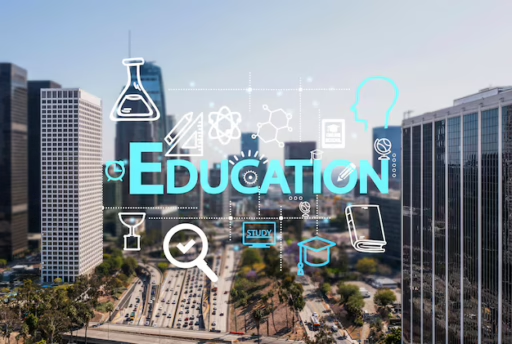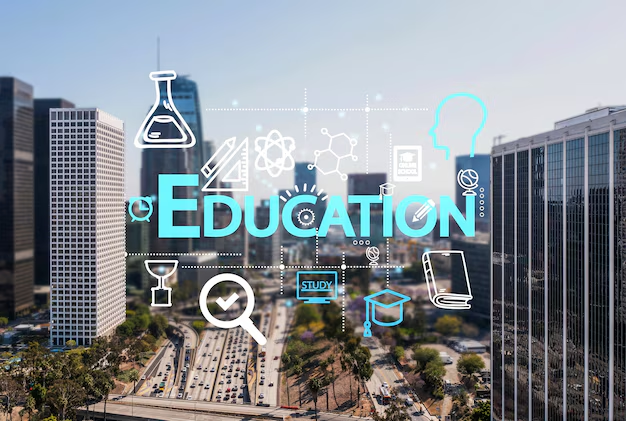The highest level of education can help you realize your full potential as a human being. Sir Ken Robinson, a renowned education expert, defined education as “enabling learners to understand the world around them, and the talents within them, so that they can become fulfilled individuals and active, compassionate citizens.” This holistic view of education goes beyond just acquiring knowledge – it’s about developing a deep understanding of oneself and the world, and using that understanding to make a positive impact.
Key Takeaways : Highest Level Of Education
- The highest level of education can help you unlock your full potential as an individual.
- Education is about more than just acquiring knowledge; it’s about developing a deep understanding of the world and your own talents.
- Pursuing higher education can prepare you to become a fulfilled and compassionate member of society.
- A wide range of degree programs, from associate to doctoral, are available to help you achieve your educational and career goals.
- Continuous learning and growth are essential in today’s rapidly changing world.
Education: The Key to Unlocking Your True Potential
Sir Ken Robinson, a renowned education expert, defined education as “enabling learners to understand the world around them, and the talents within them, so that they can become fulfilled individuals and active, compassionate citizens.” This definition goes beyond just acquiring knowledge – it’s about developing a deep understanding of oneself and the world, and using that understanding to make a positive impact.
Understanding the World and Your Talents
Education is not just about earning a degree or accumulating credits. It’s about unlocking your true potential by gaining a comprehensive understanding of the world around you and the unique talents and abilities you possess. This holistic approach to education empowers individuals to become active, engaged, and compassionate citizens who can make meaningful contributions to their communities and society.
Becoming a Fulfilled Individual and Compassionate Citizen

When you embrace education as a means of self-discovery and personal growth, you open the door to a fulfilling life. By developing a deeper understanding of yourself and the world, you can align your academic and professional pursuits with your passions and values, leading to a more meaningful and impactful career path. Additionally, this holistic approach to education fosters the development of empathy, compassion, and a commitment to making a positive difference in the lives of others.
Redefining Human Potential and Its Realization
The traditional approach to education has often focused on maximizing content and character development, with the goal of helping students “realize their full potential.” However, this approach has its limitations. While acquiring knowledge and building character are important, they do not necessarily lead to the kind of impactful, real-world accomplishments that truly reflect one’s potential.
The Traditional Educator’s Answer: Content and Character
The traditional educator’s answer to realizing human potential has typically revolved around two key elements: content and character. The emphasis has been on ensuring students acquire a robust foundation of knowledge, skills, and understanding across various academic disciplines, from science and humanities to fine arts and technical fields. Additionally, character development has been a primary focus, with the aim of shaping students into well-rounded individuals with strong moral values and ethical decision-making abilities.
The Better Answer: Real-World Accomplishments

While the traditional approach has its merits, a more comprehensive and impactful way to realize human potential is to focus on real-world accomplishments. This means not only equipping students with a solid educational foundation but also empowering them to translate their knowledge, skills, and character into tangible, meaningful contributions to society. By emphasizing hands-on experiences, practical skills, and the ability to tackle complex, industry-relevant challenges, educational institutions can better prepare students to excel in their chosen careers and make a lasting difference in their communities.
This shift in focus from content and character to real-world impact represents a more holistic and transformative approach to realizing human potential. By prioritizing practical skills, original research, and the ability to solve pressing problems, educational institutions can better equip students to thrive in today’s dynamic and ever-evolving job market and contribute to the betterment of society as a whole.
Self-Care: The Foundation for Self-Actualization
Reaching one’s full potential is a holistic journey that requires a solid foundation of self-care. Before individuals can even begin to explore their dreams, hopes, and goals, they must first fulfill their basic needs, such as getting enough sleep, eating healthy, and maintaining their physical and mental well-being. This foundation of self-care is essential for unlocking one’s true potential and achieving self-actualization.
In today’s fast-paced world, it’s easy to get caught up in the pursuit of higher education, career advancement, and other external markers of success. However, without a strong self-care routine, individuals may find themselves struggling to maintain the energy and focus necessary to truly thrive. By prioritizing self-care, individuals can build a solid foundation that supports their personal growth and professional development, ultimately helping them reach their full potential.
Whether it’s practicing mindfulness, engaging in regular physical activity, or simply taking time to unwind and recharge, self-care is the cornerstone of a fulfilling and meaningful life. As individuals strive to earn higher degrees, specialize in their fields, and prepare for rewarding careers, they must remember that self-care is not a luxury, but a necessity for reaching their full potential.
Embrace Lifelong Learning for Continuous Growth

Reaching one’s full potential is an ongoing, lifelong process that requires a commitment to continuous learning and growth. Education does not stop once an individual completes their highest level of education, such as an associate, bachelor’s, master’s, or doctoral degree. In fact, the need for lifelong learning is even more crucial in today’s rapidly changing world.
Staying Relevant in Your Profession
As the job market evolves and new technologies emerge, professionals must constantly adapt and expand their skill sets to remain competitive and relevant in their chosen fields. Whether you hold a high school diploma, an associate degree, a bachelor’s degree, a master’s degree, or even a doctoral degree, embracing lifelong learning can help you stay ahead of the curve and unlock new opportunities for career advancement.
Embracing New Knowledge and Advances
The world is constantly changing, and the knowledge and skills that were once considered cutting-edge can quickly become outdated. By continuously learning and embracing new knowledge and technological advances, individuals can not only improve their job prospects but also contribute to the progress and innovation within their industries. This commitment to lifelong learning can help you adapt to changing market demands, stay relevant in your profession, and achieve your full potential.
Find Joy in Every Learning Experience
The pursuit of the highest level of education, whether an associate degree, bachelor’s, master’s, or doctoral program, should be fueled by a genuine love of learning. Rather than viewing education as a means to an end, such as a well-paying career or a prestigious degree, it’s essential to cultivate a mindset of curiosity and excitement about the journey itself.
Each course, seminar, or research project offers an opportunity to expand your knowledge, challenge your assumptions, and grow as a person. By embracing this mindset, you can find joy in the process of learning, regardless of the specific degree type or field of study. Whether you’re pursuing a bachelor of science, bachelor of arts, or a more specialized degree program, the true reward lies in the intellectual stimulation and personal growth you experience along the way.
Furthermore, maintaining this joyful approach to learning can serve you well beyond the walls of the college or university. As you navigate your career path and continue to evolve as a professional, the ability to approach new challenges and opportunities with a spirit of wonder and enthusiasm will be invaluable. Embrace the lifelong process of learning, and you’ll unlock a deeper sense of fulfillment and resilience that will serve you well in all aspects of your life.
Also Read : Empowering Futures With Technology Education
FAQs
Q: What are the different types of college degrees available?
A: There are several types of college degrees, including associate degrees, bachelor’s degrees, master’s degrees, and doctoral degrees.
Q: How long does it typically take to complete a bachelor’s degree?
A: A bachelor’s degree typically takes four years to complete, although some programs may vary in length.
Q: What is the difference between an undergraduate and a graduate degree?
A: An undergraduate degree is typically completed in four years and is known as a bachelor’s degree, while a graduate degree is pursued after completing a bachelor’s degree and includes master’s and doctoral degrees.
Q: What are online programs and how do they differ from traditional degree programs?
A: Online programs are degree programs that can be completed remotely via the internet. They offer more flexibility in terms of scheduling and location compared to traditional on-campus programs.
Q: What is the significance of a doctoral degree in terms of education and career opportunities?
A: A doctoral degree represents the highest level of education one can achieve and often leads to advanced career opportunities, especially in fields such as healthcare and academia.
Q: Do all master’s degree programs require a bachelor’s degree for admission?
A: Yes, most master’s degree programs require applicants to have completed a bachelor’s degree in a related field in order to qualify for admission.
Q: What types of bachelor’s degrees are available, and how do they differ?
A: Bachelor’s degrees can be either a Bachelor of Arts (BA) or a Bachelor of Science (BS), with each focusing on different areas of study and expertise.


